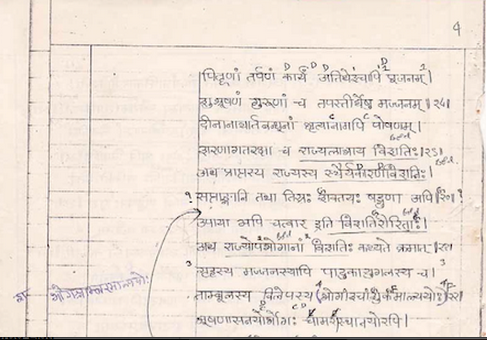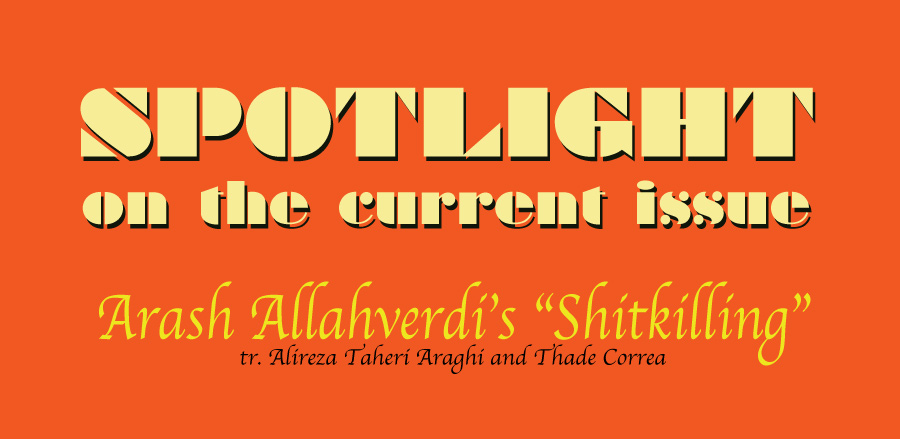January and February marked a celebration of the third anniversary of a valuable international volunteer project: a journal dedicated to literary translation going under the unexpectedly mathematical name of Asymptote. Literary evenings and panels were organized in London, New York, Boston and Zagreb on this occasion (the birthday party lasts throughout April as well, venturing to Philadelphia, Shanghai, Berlin, Buenos Aires and Sydney). READ MORE…
Essays
My l’esprit de l’escalier and Croatian literature abroad

"Should I be firm and show attitude, or rather go with the soft, constructive approach? I chose the second, and I made a grave mistake."
RIP: Roberto “Freak” Antoni

"One good thing about getting sick, really sick... was that it made him give up drugs."
Roberto Freak Antoni died just short of age sixty on February 12 this year. One good thing about getting sick, really sick, he noted, was that it made him give up drugs. Antoni—or Freak, his moniker among legions of both young and aging fans—was by no means a role model, but a rock star and poet, and above all a deeply subversive figure in Italian literature and pop culture.
The Joys and Dangers of Translating Asian Dictionaries: Part I.

"Do the Siamese differ from us just on the level of their names for concepts, or is their very conception of the world different?"
A few weeks ago, I sat down to write up a few thoughts I had been having regarding a twelfth century South Indian encyclopedia called the Mānasollāsa. I’ve been reading from this encyclopedia with much guidance from Dr. M.A. Jayashree, who is currently leading up a massive translation and critical edition project. The encyclopedia itself is massive: much of its scholarship gives up halfway, and the translation project still has a long, long way to go.
Somewhere in the translation process, I picked up the rhythms and cadences of king Someśvara III. What was initially supposed to be a short blog post morphed into a bizarre trip down many (partially fictitious) orientalist caverns, eventually reemerging somewhere in what is now known as Karnataka. The editors at Asymptote followed me down the rabbit hole, offering guidance along the way, and together we decided to split up the piece into a series of more digestible fragments. Hang in there! I hope you all stick along for the ride.
Why good translated literature isn’t just for grown-ups

"Для детей нужно писать так же, как для взрослых, только лучше." (Variously attributed to Maxim Gorky, Samuil Marshak, Leo Tolstoy, others.)
In the life of every bibliophile-parent, there comes a moment when each new children’s book begins to seem very much like the last. A blurry train of flat narratives skim past one’s eyes, filled with stock characters, stale language, and an all-too-familiar anodyne tone. Yes, there are brilliant books that stand out, and these are worth reading and re-reading. But there is also a sameness that suffuses English-language books for young people, a shared set of narrative tools and assumptions. READ MORE…
Though those Russian missiles never made it over from Cuba to the US in 1962, several Russian songs did hit their targets, flourishing in foreign ears even in the permafrostiest months of the Cold War.
Perhaps the best-known Russian tune out west is “Those Were The Days,” a song based on “Дорогой длинною,” pioneered by Ukrainian-born cabaret singer Alexander Vertinsky (who recorded the version embedded above) and written by Russian composer Boris Fomin to lyrics by Konstantin Podrevskii. Read in translation, the song sings of grief and of regret for past joys gone too soon:
I just keep on repeating his name, I call out to him, I call him on the phone, as if he would answer. I have no words. The demons of death had been hovering around Szilárd for a long time. I was afraid of them at times—he certainly was not. He lived with them, but he did not feed them. READ MORE…
In the opening chapter of his Sanskrit masterpiece, the Vikramāṅkadevacarita, Bilhaṇa, a Kashmiri poet living in 12th century Karnataka, writes:
Where is the fame of those kings who do not have eminent poets on either side?
How many kings have come and gone from the earth?
Nobody even knows their names!
A few years ago, I was walking with my wife and daughter up a steep narrow cobblestone street in the medieval center of Viterbo, a town just north of Rome that for many centuries was a papal summer capital. I noticed a tall man dressed aggressively for success, his clothing put together impeccably with a ferocity that struck me as uniquely Italian. He surveyed the passing strollers with an air of command from the doorway of a storefront papered with posters for Silvio Berlusconi’s political party, Forza Italia, a movement named after a soccer cheer. I nudged my wife and pointed to the man: she nodded, but I sensed she hadn’t seen what I had. I think you have to live in a country for a decade to see it through local eyes. Even today it’s hard to convey just what Berlusconi and his followers represent in Italy, unless you’ve lived through it. READ MORE…
Arash Allahverdi’s “Shitkilling,” translated from the Farsi by Thade Correa and Alireza Taheri Araghi, is a powerful poetry standout in Asymptote’s Winter Issue. It’s seductive: inviting its readers to read, “to come and do drugs,” to submit to the poem’s provocations—and “as if semen drink the water”—the poem is a one-of-a-kind experience of the high and low, of the routine and the extraordinary. READ MORE…
When Benjamin reached over for a guitar, the last thing I expected to hear come out of his mouth was a Hank Williams song. You see, Benjamin grew up and learned how to play music in a small town in Nagaland, the region in the northeastern periphery of India that is considered isolated and remote from the rest of the continent. (It requires special permits to visit.) Benjamin sat back slowly strummed the guitar and played some of the most haunting renditions of American country-western songs I have ever heard.
Most songs about snow are also about Jesus, or about Santa, or cozying up in a toasty cabin. They’re not all like that though, there’s Belle & Sebastian’s “Fox in the Snow” (here in a choral version from Vancouver and here in a delightfully dark version by the great Kiki & Herb), and let’s never forget Marvin Gaye’s “Purple Snowflakes”, which seems ripe for a cover by well-known syzzurp aficionado Justin Bieber. There’s Kate Bush, who recorded an entire album about the ethereal white crystals. Inspired by the widespread idea that ‘Eskimos’ have hundreds of words for snow, Bush created her own list of 50 snow-white synonyms, coming up with delightful terms such as “Zhivagodamarbletash”, “sorbetdeluge”, or “swans-a-melting”, and recorded them with the help of Stephen Fry (rather obsessed with the vagaries and varieties of language). As for ascertaining just how many Eskimoan terms there really are for snow? READ MORE…
Three days of national mourning were declared in Argentina to commemorate the life of poet Juan Gelman, who passed away at eighty-three on Tuesday, January 14th in Mexico City. Silvina Friera of Pagina/12 remembered the Argentine poet’s great contribution to Spanish literature, stating “we have lost a man who transformed wounds into memorable verses…an untamable voice, so close and so beloved, whose deep cadence crackled with an elegant and playful irony.” READ MORE…
You’ve read about it, Monday was supposedly the saddest day in the year, or so ‘scientists’ claim. Blue Monday. Of course that’s bullshit, as this Guardian blogpost heartily shows. Still, is it a coincidence that Monday also saw the arrival of the Berlin season of snow and ice? As someone with a decidedly ungenetic equatorial disposition, I’m having a hard time, needless to say, so I’m resorting to musical therapy to keep my morale up.
But what to play? New Order’d be good, if awfully literal, perhaps the steamrolling original, or this delightfully goth Gregorian version, or maybe the below French-language version by The Times, an English band signed to Creation Records that also recorded Japanese, Spanish, German, Brazilian Portuguese versions (all of which now very happily in my possession). READ MORE…









